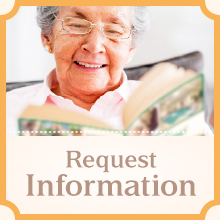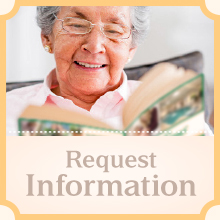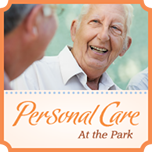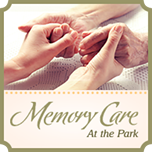I want to thank you for the care that was bestowed upon my mother Elaine Hartman during her stay at Memory Care 2. We never felt dismissed by or like we were annoying any of the care givers. Everyone was very helpful, although I do not recall that many specific names. I remember Christopher as being someone particularly nice to my mom and we really missed Anita when she left. Natalie really stood out. She was my lifeline during the time that we could not visit due to the covid virus. I was calling often and no one made me feel like a bother. And of course you, Michele. You were always so kind, caring and helpful.
Beth H. and familyMany years ago, people thought that any form of memory loss in older adults automatically meant Alzheimer’s was setting in. However, we now know that people experience episodes of forgetfulness for a variety of reasons and memory loss is not a side effect or natural effect of aging.
On the other hand, some memory problems do indicate the presence of a serious condition, including that of dementia. It can be caused by any number of diseases or conditions, with Alzheimer’s disease being the most common. Additional signs and symptoms of dementia include:
- Aphasia
Seniors who are developing dementia may start losing the ability to communicate as they normally would. For example, many older adults substitute words in a conversation that make no sense. Others find it hard to put things into words, even though they know what they’re trying to say. Another sign of aphasia is forgetting the name of a common object. Let’s say a senior wants you to pass the salt, but she can’t remember the word “salt” and quickly becomes frustrated with this lapse of memory.- Disorientation
Another sign of dementia is disorientation. Seniors who cannot tell you the current date, where they are, or their name are said to be suffering from disorientation. For seniors who wander, disorientation is especially worrisome and will likely require some form of eldercare to ensure their safety.- Depression
Scientific experts are still trying to determine whether or not dementia causes elderly depression. Despite any conclusions drawn in the future, with so many seniors suffering from both dementia and depression, it’s hard to deny there is a link between the two.
Serious signs that tend to indicate dementia include emotional withdrawal, social withdrawal, unintended weight loss, severe insomnia or suicidal tendencies. Clinical depression should not be confused with infrequent bouts of the blues, making an expert diagnosis essential.- Behavioral Disorders
Changes in behavior patterns are normally seen after the onset of other dementia symptoms, but can (and often do) occur at any time. Seniors with dementia usually begin to act in ways that are very inappropriate, such as sexual advances or fits of physically aggressive rage. One of the most dangerous behavioral disorders has to be wandering, which is also linked to disorientation to person, place and time. When seniors begin to wander, eldercare services are absolutely essential for the safety of everyone involved.My aunt originally moved into Personal Care at The Park and later transitioned to Memory Care. I was very happy with both environments. Through experience with other family members at other facilities I can say without question The Park was the best. Always very clean, good food and exceptional care. Nikki who worked in Memory Care became my aunt’s best friend and kept her happy and engaged until her passing. The Director and staff earned my trust over time through their consistent care for my aunt. I wouldn’t hesitate to recommend The Park to anyone.
Rick L.We now know that, in order to stay sharp and healthy, we must remain active. In fact, research has proven that seniors get the most benefits by completing both mental and physical forms of exercise. These activities can essentially pump up the brain and overall muscle tone.
For seniors, daily physical and mental activities can ultimately produce tangible results in the brain and body. So daily activities, for instance, help to boost mobility, brain activity, and overall quality of a senior’s life.
Additional reasons that older adults need a daily dose of activity can include the following:
- Independence: For seniors living independently or in an Active Living Community, the possibility of a fall is never impossible. However, with daily exercise and mental stimulation, seniors are able to change that possibility to an almost certain zero. Physical activities promote muscle strength and improve mobility, while a mental workout improves clarity and decreases forgetfulness. Two powerful ways to combat a bad fall.
- Awesome balance and reflexes: When seniors include daily mental and physical activities, a decline of these skills can be delayed or prevented altogether. And, not only will strength and coordination skills benefit a senior’s reflexes, but it will also improve reason 1 to remain active.
- The end of high stress levels: Life can be particularly stressful for older adults. Stress has a way of wreaking havoc on the body, mind, and blood pressure of all seniors. It is also known to increase the risk of heart disease, affect the way the brain processes/uses information, and decreases memory retention. Fortunately, seniors can work to reduce stress by performing both mental and physical activities.
Mind and Body Activities
Seniors looking to get active or boost brain power should consider some of the following activities:
- Sudoku or similar forms of mentally-stimulating puzzles
- Brisk walks in environments that aren’t too physically challenging
- Swimming or water aerobics (age-appropriate classes are usually available)
It is widely known that individuals aged 65 and older are at a much higher risk of severe complications due to the influenza virus. More so than any other age group. It has been estimated that about 90% of flu related deaths are among this age range. Between 50% and 60% of hospital stays due to flu complications occur within the senior group in the United States. As individuals age, their immune system begins to weaken making influenza a very serious threat. There are several steps that seniors can take to combat the flu season. Anyone who presents with flu like symptoms should immediately consult a health professional.
Influenza Vaccines
Once the immune system begins to weaken individuals become extremely vulnerable to the flu virus. It is crucial to ensure those aged 65 or older receive their flu vaccines. There are currently two options for this. One vaccine is a normal dose and the other is considered a high does flu vaccine. It is important to consult a medical professional when deciding which is best. Most communities have flu vaccines available around the month of October. The best bet is to get it as soon as possible.
Practice proper Hygiene
Everyone should practice proper hygiene. This isn’t a checklist for your aging loved one and ONLY your aging loved one. But they are at a higher risk of developing serious complications from this disease. Therefore, here are some hygiene tips. These are some of the most effective ways to combat flu season.
- Keep your hands clean. This may be done with soap and warm water. Wash the hands for at least 20 to 30 seconds before rinsing. Be sure to dry with a clean cloth afterwards. If there is no soap and/or water present, use an alcohol based hand sanitizer.
- Cover the nose and mouth every time a cough or sneeze threatens, if possible. Cleanse or sanitize hands immediately after each and every sneeze or cough.
- Make it a conscious habit to refrain from touching any of the orifices of the face. This includes the eyes, ears, nose, and mouth.
- Try to keep countertops and surfaces in all rooms clean and sanitized, especially if anyone present is sick.
- Wash clothes including towels and washcloths on a regular basis. It is a good idea to wash bathing items and clothes used by sick individuals immediately after use.
- Keep your distance from individuals who are known to be sick and all individuals who are sick should stay at home.
- Try to avoid allowing sick persons to visit until they are well to prevent the flu from spreading. Small children often are not old enough to be completely conscious of all good hygiene habits and may spread the virus unintentionally.
While scientists continue to look for a cure for dementia, psychological treatments can help to make long term care much more successful. If seniors can cope with the symptoms of dementia more effectively, their quality of life immediately improves.
As with every plan of care, it’s important to speak with the family physician before starting new treatment activities. However, here are some ideas to get you started:
Cognitive Stimulation
Cognitive stimulation, as the term implies, represents the activities or exercises specifically designed to boost brain activity and health. Seniors who take part in activities that stimulate the brain can help to improve memory, problem-solving skills and the ability to hold a conversation. A strong brain can help keep dementia at bay for extended periods of time. Some of the best cognitive stimulation activities include memory and word games that work to ensure older adults remain alert and oriented to person, place and time.
Cognitive stimulation can help improve thinking and memory skills in seniors diagnosed with dementia. What’s more, in-depth research on the benefits of brain stimulation led the UKs National Institute for Health and Care Excellence (NICE) to recommend these activities for the treatment of mild to moderate dementia.
Validation Therapy
Validation therapy focuses on dementia from an emotional perspective. At its core, validation therapy works on the premise that each and every behavior exhibited by those with dementia has an emotional meaning.
Let’s say an adult daughter is visiting her elderly mother, when her mother suddenly becomes extremely agitated. The mother yells over and over again that her husband is late for dinner, when, in reality, her husband has passed years prior. If the daughter tells her elderly mother that her husband is no longer alive, she could become even more confused and combative.
When using validation therapy, the daughter’s response might be something like “Dad’s running just a little late for dinner because traffic is so bad.” Once the thought is validated, caregivers immediately offer some kind of activity to occupy the senior’s mind. Experts believe validation and distraction help to decrease stress levels, while also acknowledging their feelings and concerns are being heard.
No one is excluded from the holiday weight gain battle. But it is a shame that the two most loved aspects of the holidays are family gathering and delicious food. As a result, January usually leaves everyone searching for methods of losing holiday weight. Luckily, there are a number of healthy activities to help everybody lose a few extra pounds!
Set Appropriate Goals
Setting goals for seniors to lose holiday weight should be viable and safe, and always include their input. It is important to listen to elders’ opinions and preferences: discuss their options and their views on the matter. Appropriately setting realistic goals will evoke much more enthusiasm and therefore produce better results!
There are many benefits to engaging in physical activity. It’s been medically proven that those who are not sedentary fall asleep easier, sleep longer, and rest better. Exercise and appropriate rest improve self-confidence and mental health. It also improves cognitive abilities which is essential to aging persons, especially those who may suffer from dementia disorders or Alzheimer’s disease.Physical Activity
Medical professionals strongly recommend that older individuals get 2 to 2 ½ hours of moderate physical activity each week, depending upon their current health condition. They should also engage in some sort of low impact activity on a daily basis, however it is very important to consult with medical professionals first.
- Walking is one of the best low impact activities for most all individuals. Schedule a few days each week to take a leisurely stroll on the local property or at the park.
- Dancing is not only a wonderful exercise, but an exciting activity. Perhaps a weekly dance session or lessons can be organized. This not only gets everyone moving, but provides an excellent method of socialization.
- Caring for pets can be extremely beneficial in several ways. A dog must be walked and played with on a daily basis for positive health. For pets, play is much the same as exercise. Caring for animals has been proven to promote many health benefits, physically as well as psychologically.
- Yoga is a wonderful activity that boosts brain activity and mood. Yoga does not simply encompass stretching. It teaches breathing for health and meditation.
An estimated half of all people over the age of 85 have hearing loss. Whether the amount of hearing loss is minimal or pronounced, it should never be ignored. If hearing problems are not addressed by a medical professional, the outcome can be extremely bleak.
Hearing loss affects seniors in different ways. For example, hearing problems can make some seniors feel a great sense of embarrassment or prompt them into self-imposed isolation. After all, when someone can’t follow a conversation among groups of friends, it can be very upsetting.
Another problem associated with hearing loss is stigma. While no amount of hearing loss warrants a label, friends and family members can often mistake these seniors as confused, aloof, abrasive or difficult, when the problem is really caused by hearing loss.
Types of Hearing Loss
Hearing loss comes in multiple forms, ranging from mild loss to total loss of hearing. The condition can be hereditary, a result of disease, trauma, certain medications, or long-term exposure to loud noise. Overall, there are two categories of hearing loss:
Sensorineural
This type of hearing loss sets in when the inner ear or auditory nerve is damaged. Sensorineural hearing loss is almost always permanent.
Conductive
Conductive hearing loss is present when sound waves can no longer reach the inner ear. Common causes are a build-up of earwax, fluid in the ear canal, or a punctured eardrum. With proper treatment and/or surgical intervention, hearing can usually be restored.
How Can You Help with Communication?
When you’re talking to a loved one with hearing loss, follow these communication tips:
- Be sure to face him or her and speak clearly
- Never hide your mouth, talk while eating, or chew gum
- Make an effort to speak at an appropriate speed. Avoid speaking too quickly
- Remove background noises if you’re able to
- Employ facial expressions and physical gestures when telling a story, they give valuable cues
- Repeat yourself as necessary, slowing down your speech each time
- Keep him or her involved in conversations, continue speaking with him or her on a regular basis
- And most importantly, show patience when communicating with a senior loved on











